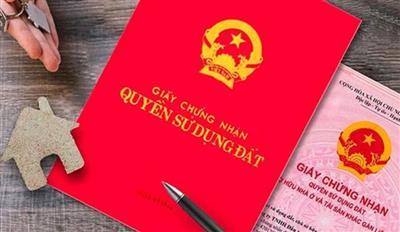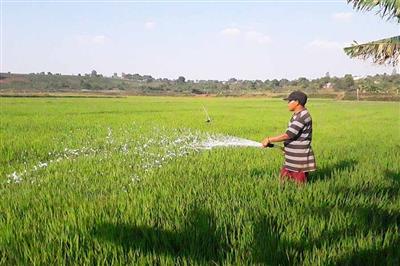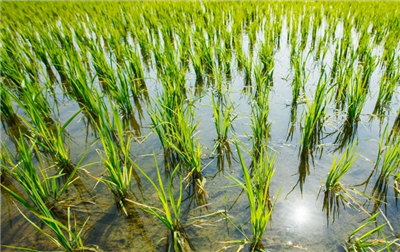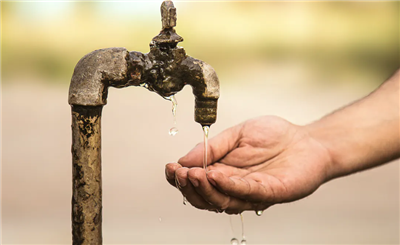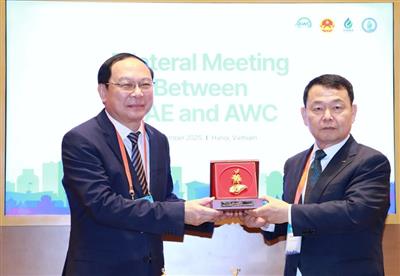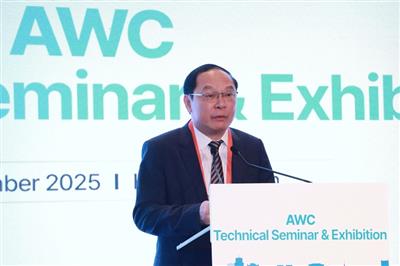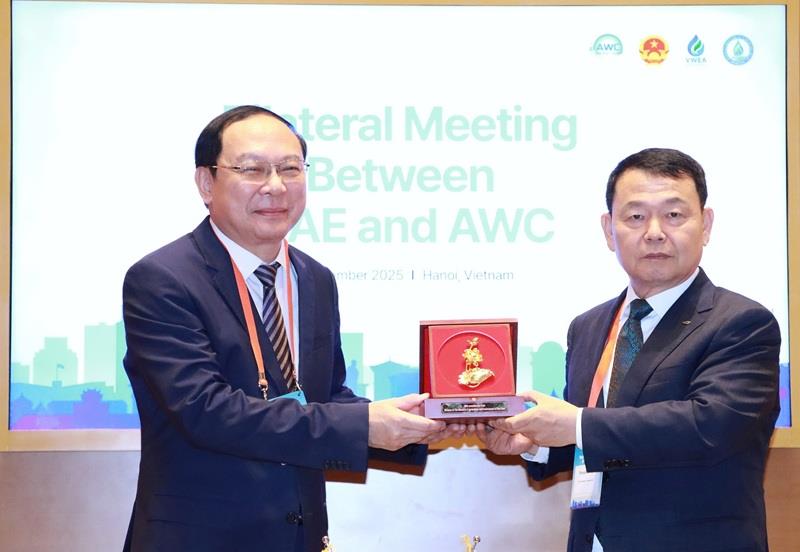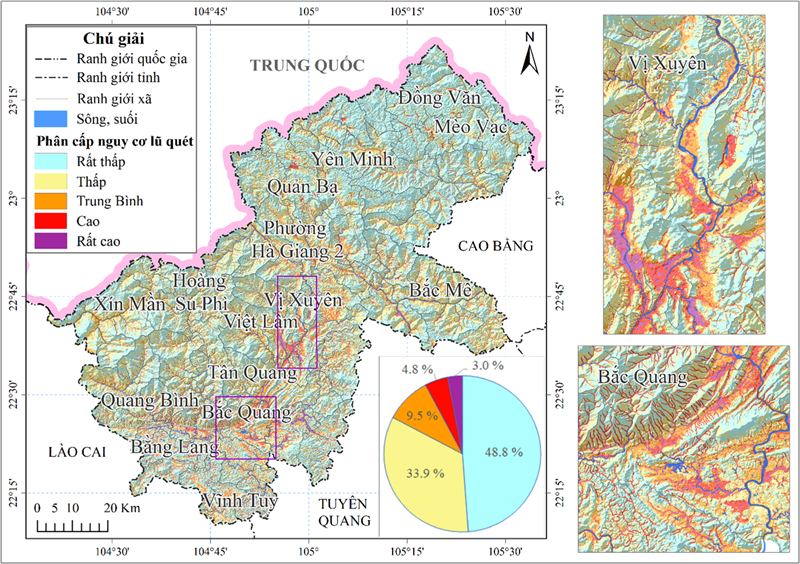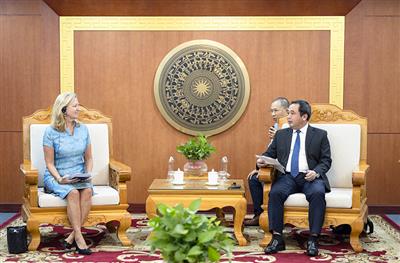
Vietnam and Japan deepen strategic partnership for sustainable development
05/10/2024TN&MTOn October 4, Minister of Natural Resources and Environment Do Duc Duy held a working meeting with H.E. Mr. Ito Naoki, Ambassador extraordinary and plenipotentiary of Japan to Vietnam. Both sides agreed to further promote their strategic partnership, focusing on key areas such as climate change, waste management, and the development of a circular economy. The aim is to address Vietnam's pressing priorities in the near future.
Sustainable development cooperation in waste management and renewable energy
During the meeting, Minister Do Duc Duy expressed his deep gratitude to the Government and people of Japan for their valuable support in helping Vietnam recover from the aftermath of super typhoon Yagi. This assistance not only symbolizes the strong friendship between the two countries but also helps Vietnam swiftly restore and stabilize its economic and social activities following the natural disaster.
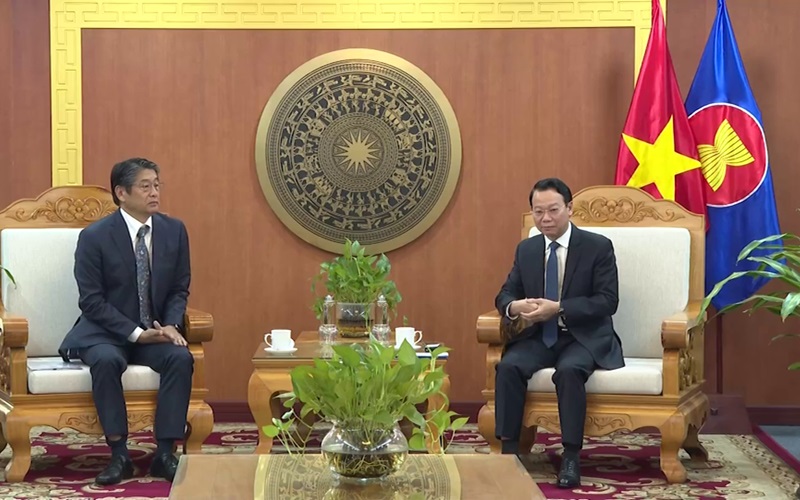
Minister Do Duc Duy receiving H.E. Mr. Ito Naoki, Ambassador extraordinary and plenipotentiary of Japan to Vietnam
The two sides discussed continuing cooperation in waste management, focusing on waste-to-energy initiatives to support Vietnam's sustainable development. Japan has made significant contributions by providing equipment for investigating, surveying, and analyzing marine plastic waste. They have also organized training programs and workshops on plastic waste management, not only for Vietnam but also for ASEAN countries.
In the current context, Vietnam is actively implementing the Sustainable Marine Economy Development Strategy until 2030, with a vision to 2045. This strategy includes key tasks under the National Action Plan on Marine Plastic Waste Management until 2030. To support this, Japan has assisted Vietnam in building infrastructure, such as waste-to-energy plants, and developing effective waste management regulations.
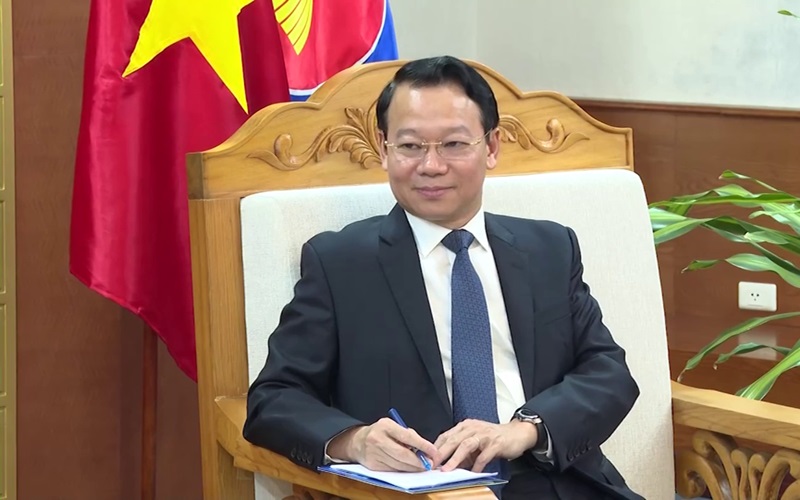
Minister Do Duc Duy at the meeting
Ambassador Ito Naoki reaffirmed that Japan will continue to share its expertise, support the development of relevant legal documents, and organize training programs to enhance the capacity of Vietnamese officials and experts, helping them access advanced technologies from Japan.
Strengthening bilateral relations through the Joint Crediting Mechanism (JCM)
A key highlight of the meeting was the discussion on the Joint Crediting Mechanism (JCM), a cooperative initiative between Vietnam and Japan aimed at reducing greenhouse gas emissions and promoting carbon reduction projects. This mechanism has strengthened Vietnam's capacity to reduce emissions and transition to a green economy while creating opportunities for Japanese and Vietnamese businesses to collaborate on clean energy projects.
Minister Do Duc Duy suggested that Japan could further support Vietnam by assisting with green credit projects and developing renewable energy initiatives to meet Vietnam's sustainable development goals under the COP26 framework. Ambassador Ito Naoki expressed confidence in the outcomes of this bilateral cooperation, emphasizing that Vietnam's participation in the JCM plays a crucial role in fulfilling international climate commitments and advancing greenhouse gas reduction efforts. Japan has supported Vietnam in implementing more than 40 JCM-related projects, enhancing its ability to meet the targets of the Paris Agreement.
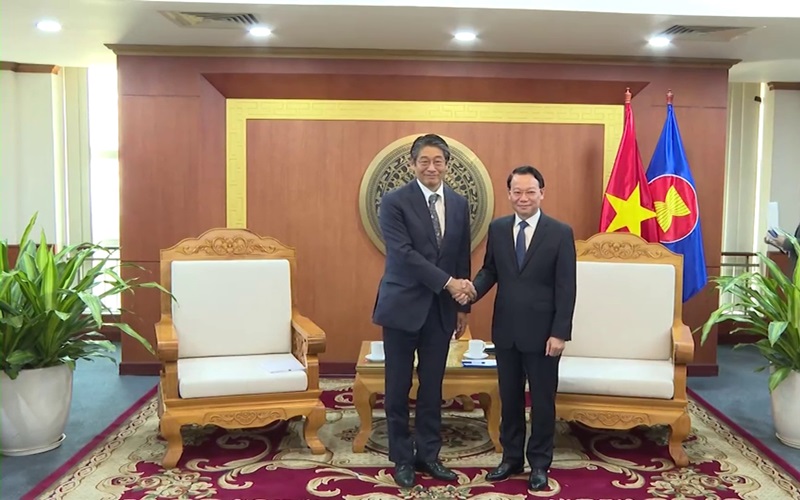
The two sides discussed continuing cooperation in waste management, focusing on waste-to-energy initiatives to support Vietnam's sustainable development
The working meeting opened new opportunities to deepen the strategic partnership between Vietnam and Japan, not only in the field of environmental protection but also in expanding cooperation in other areas, promoting sustainability and environmental protection for both countries.
Earlier, in January 2024, the Ministry of Natural Resources and Environment of Vietnam and Japan’s Ministry of the Environment held the 8th Vietnam-Japan Environmental Policy Dialogue in Hanoi. On this occasion, the two sides signed a Memorandum of Understanding (MoU) on environmental cooperation, marking a new phase of collaboration between the two ministries in areas such as climate change and plastic waste reduction. The areas of cooperation agreed upon during the event include climate change adaptation and mitigation, Measurement, Reporting, and Verification (MRV), decarbonization technology, waste management (including e-waste and the circular economy), marine plastic waste and plastic pollution, water and air pollution, environmental technology, chemical pollution prevention, environmental impact assessment, sustainable environmental cities, biodiversity conservation, and other environmental protection fields as agreed upon by both parties.
Ngoc Huyen







